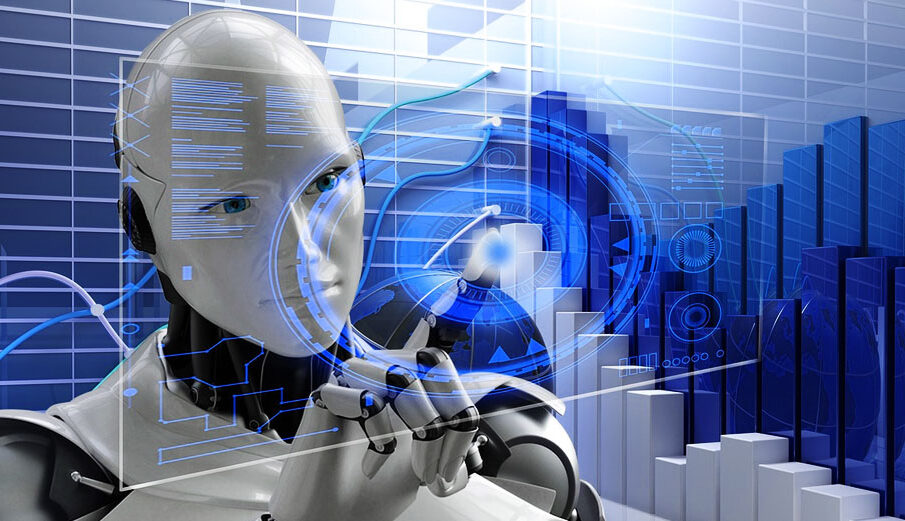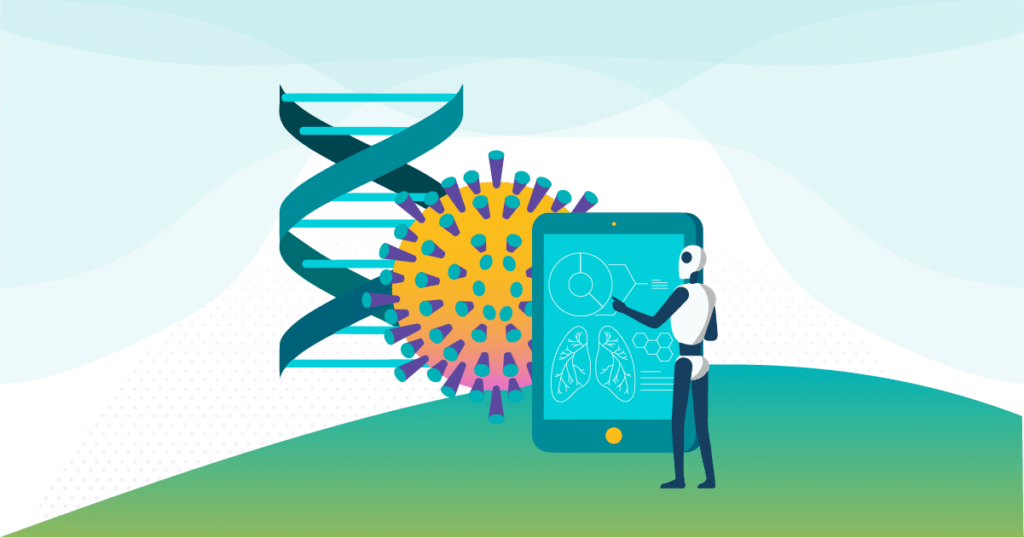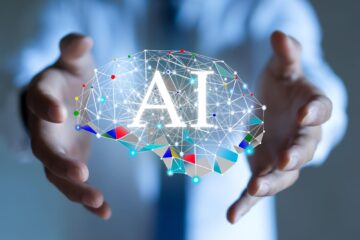Responsibly Leverage AI Technology in The Battle against COVID-19

The entire world is dealing with the COVID-19 pandemic, with an alarming number of cases exceeding 2.2 million and deaths over 150,000. The situation forces nations to go on lockdown, federal governments to enforce quarantines and travel bans, services to shutter, and so on. Individuals have to limit direct contact with others. In the context of many individuals being at high risk of infection, determines to avoid the spread of the virus causing COVID-19 to need prompt optimization. Such procedures associated with migration examination, medical statement, infection detection, or using surveillance and tracking gadgets end up being more crucial than ever previously.
However, standard procedures are no longer appropriate due to limitation policies and a lack of human resources. Additionally, the number of people that require monitoring health status is speeding up. In order to improve those measures, police have leveraged the achievements of computer technology. Synthetic intelligence and equivalent innovations can carry out intelligent and imaginative functions of a human in preeminent methods.
It is noteworthy that not just the police system however other firms likewise turn to AI to confront COVID-19. For instance, such technologies can process a good deal of information to forecast the spread of the pandemic, map out, and discover contaminated cells or power robotics that replace human beings in hospitals and isolated locations.
How Countries Use AI Technology to Combat COVID-19
The coronavirus causing COVID-19 initially appeared in Wuhan, the capital of Hubei province in central China. Because then, local authorities have taken particular steps to grasp the scenario. They strictly control immigration and monitor thought cases. For example, the Chinese Cops utilize electronic cameras with facial acknowledgment innovation to timely identify and see quarantined cases. There are various people that traveled to COVID-19-affected locations or had close contact with believed and verified cases.
Some countries have turned to use drones to confine the infection. In Kazakhstan, the Nur-Sultan Authorities Department patrols and screens illegal movement across national borders by drones to slow the spread of coronavirus. In China, Spain, and France, drones aid regional authorities to patrol streets, parks, riverbanks, and broadcast orders in order to ensure that they abide by authoritative constraint commands. Another AI application is the tracker wristband, which is used in Hong Kong to help geofence individuals. At the airport, each arrival receives a wristband with a specific QR code. Then they need to get a mobile app “StayHomeSafe” and connect the provided wristband with the app by scanning their QR code.
Technical gadgets used to find raised body heat are also launched to limit viral transmission. In the United States, Athena Security, a cutting-edge AI security electronic camera startup, states that they have deployed “coronavirus-detecting” video cameras. Their AI thermal cameras are able to spot coronavirus in individuals along with sending out instant informs. Dermalog has developed a thermal video camera using biometric fever screening to quickly and precisely determine body temperature. Dermalog is the biggest biometric company based in Germany. Biometric screening systems are likewise offered in airports to include the infection.
Preventing The Abuse of High Technology
Thanks to synthetic intelligence and other similar innovations, the number of cases, to some level, is under control. Such innovations, without a doubt, will take a crucial part in confronting COVID-19 in the incoming days during the breakout.
However, there arises a problem related to human rights. Since authorities can keep a tab on their citizens through AI gadgets, human personal privacy and flexibility might be seriously impacted unless they take advantage of technologies with caution.
On March 19, 2020, The Office of the High Commissioner for Human Rights (UN Person Rights) released a joint statement “COVID-19: Federal governments need to promote and secure access to and free flow of information throughout pandemic –– Global specialists”. They mentioned that, besides offering genuine and accessible sources of essential information, governments need to make sure that those tools are “limited in usage, both in terms of function and time”. Human personal privacy rights, non-discrimination, the defense of journalistic sources, and other liberties must be “carefully protected”. Additionally, authorities should secure every patient’s individual data as well.

Safeguarding Human Being Rights While Availing Technologies
What should companies do? How to keep utilizing AI innovations to challenge worldwide pandemic while securing human personal privacy rights and freedom?
Governments around the world are taking benefit of security tools at their disposal to help repulse the spread of COVID-19. Governments either collect anonymized info to comprehensively examine the motion of individuals or give out detailed information about individuals’ locations. A lot of data events are through smart devices. To better protect the right to personal privacy while tracking people, some nations have turned to anonymized information aggregation.
However, gathered personal information, no matter being anonymized or detailed, is in danger of being misused for other purposes. It is important that governments guarantee those data satisfy with medical purposes just.
As COVID-19 becomes a danger to the whole world, nations should collaborate with others. Individual reactions are not adequate to fight the pandemic, according to Antonio Guterres, the ninth Secretary-General of the United Nations. This statement is likewise real for police. Simply put, companies should share their AI technologies along with important information for typical medical functions.
This is the first time in human history AI innovations can assist authorities to track every single person round the clock. However howsoever extreme the storm is, it will eventually pass. When the pandemic completely ends, companies should change their security capabilities to protect their people.
We need to always understand the duality of high technology in a basic and expert system in specific, then use it for legitimate functions.














